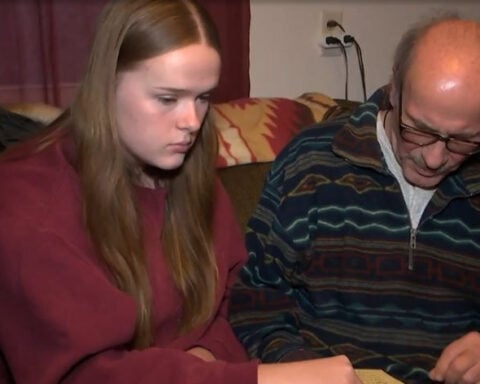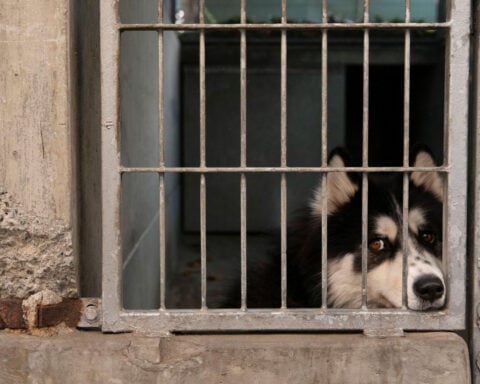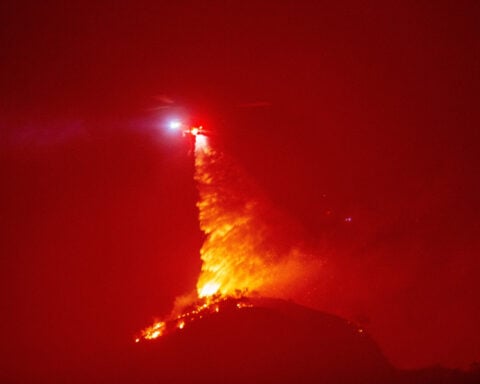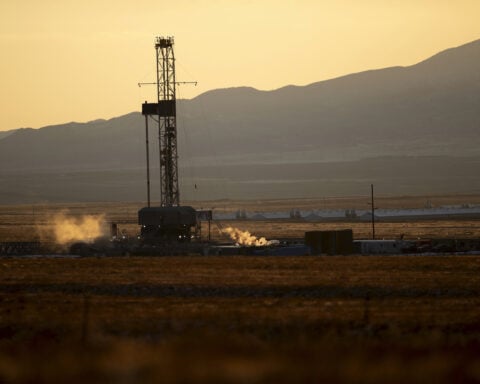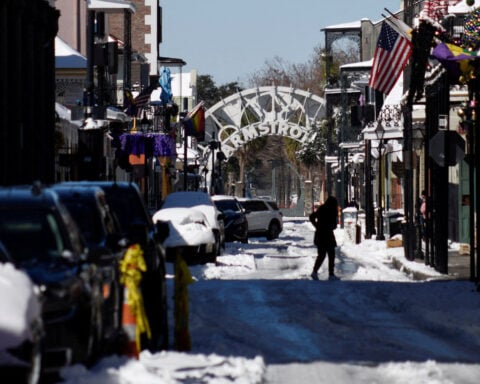New York (CNN) — Martin Johnson and his fiancé, Celeigh Chapman, had spent several years restoring and renovating their home in Altadena by hand. It took only hours to lose the home and everything in it last week.
“We didn’t have a kitchen for a year and a half. We had just cooked the first dinner in the house just after Christmas,” said Johnson, who co-owns LA Woodshop, which provides woodworking spaces and lessons for people who want to do it themselves or build furniture professionally.
“We spent many nights hand-sanding doors and window frames,” Chapman said.
“The floors took 18 months to finish,” Johnson said. “We were weeks away from being done making the house into a piece of art, and now it’s gone.”
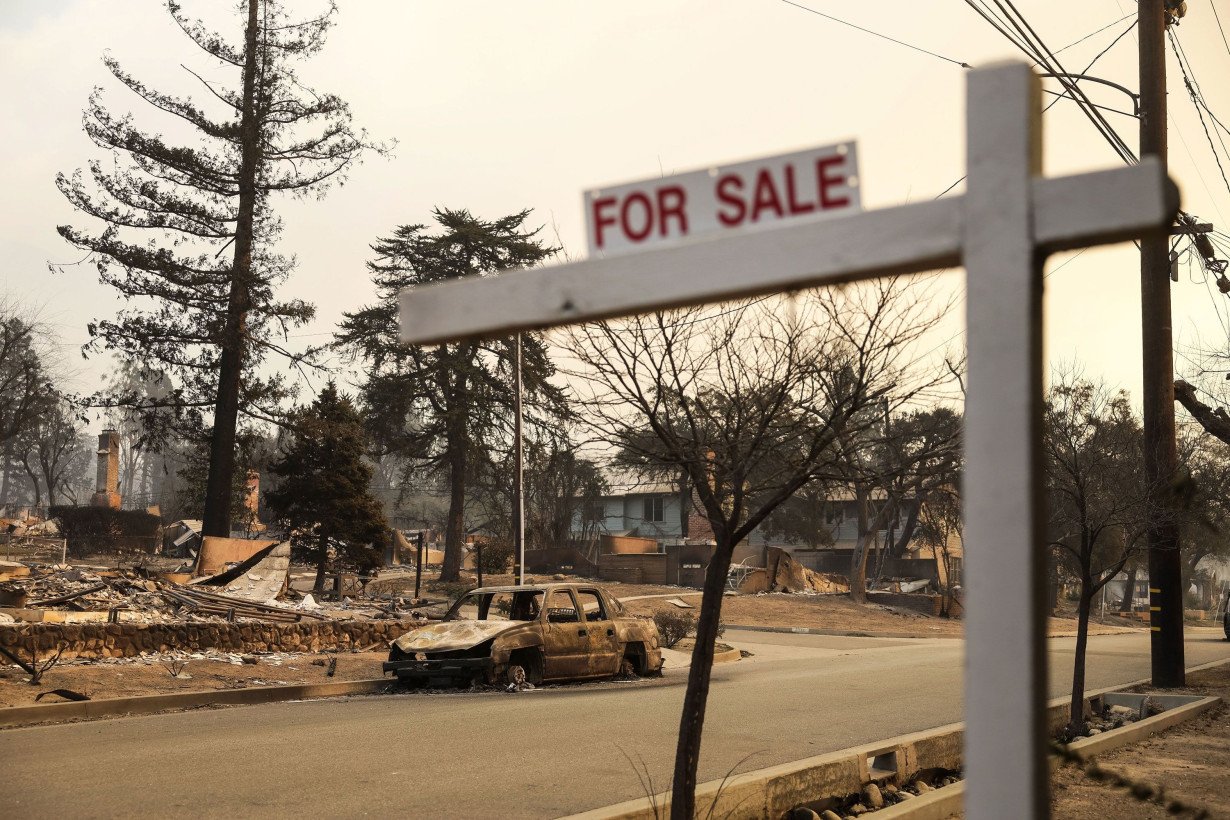
If dealing with that financial and emotional loss isn’t enough, they’re faced with what was already a difficult and expensive housing market in Southern California. The massive wildfires that have sent thousands of families scrambling to find some place to live, likely for the next several years, could make everything even worse.
They’ve been staying with friends since they evacuated, dealing with the stress and anxiety that Chapman says has made it difficult for her to sleep.
“I think we’ll find something,” said Johnson. “If it ends up being a lifestyle downgrade for more money is difficult to say. We can’t be too selective. We couldn’t be selective even before 10,000 houses burned down.”
Real estate agents and economists agree. They say the sudden surge in demand for housing by those who lost their homes, combined with the plunge in the number of homes available, is likely to send housing prices — to buy or to rent — shooting up in the months and years ahead.
Short supply, surge in demand
“We were already in a housing crisis. Even before this, we didn’t have nearly enough homes for sale. We didn’t have enough homes for lease,” said Los Angeles real estate agent Brita Kleingartner. “Now there’s an overwhelming demand, and we’re just starting to see what that looks like. All our agents have had their phones ring off the hook. Most of showings are for families who have lost everything.
“It’s very sobering,” Kleingartner added. “The next week will be really heart breaking.”
Some real estate agents are saying they’re already starting to see prices of rental units climb hundreds, if not thousands, of dollars a month. Prices of some units that had been on the market are up 15% to 20% in the last week, said Jeremiah Vancans, another Los Angeles real estate agent.
“Demand is going to be through the roof,” he said. “The inventory was already pretty low. I imagine it’s going to create more upward pressure on prices.”
But he said the longer-term impact on prices is tough to determine, as people are trying to get a sense of how much they might get from insurance for their losses.
“It’s too early to really tell how this is going to affect the LA market,” he said. “People are still numb. The fires are still burning.”
Real estate agents reported working 12-to-14-hour days because of the surge in demand.
“There are basically no rentals,” said Jade Mills, a Beverly Hills real estate agent at Coldwell Banker. “I’ve been on the phone for the last two days asking my sellers if they’d be willing to rent, or calling rentals that are no longer available.”
Her son lost his home in Pacific Palisades, too.
Years to rebuild lost supply
Restoring the city’s lost housing stock is likely to take at least three to five years, according to the real estate agents who spoke to CNN, because of the time it takes to clear the burned homes, reach settlements with insurance companies, work through the permitting process and then find the labor needed to rebuild.
Vancans said in addition to the increased prices on some rental units, he’s concerned that those who lost their homes could get cash offers for the property where their houses once stood — the offers coming from what he calls “predatory buyers” who are seeking to take advantage of financial misfortune.
A study of past wildfires by Redfin showed that the average prices for property can actually fall in the short term as fire-damaged homes or lots that need to be cleared of debris sell at a discount. But that decline doesn’t last.
“Like much of the US, California is facing an acute housing shortage,” said Daryl Fairweather, chief economist at Redfin. “The wildfires themselves are also making housing more expensive. After a town burns, builders come in and construct new homes, which are typically more expensive. And homeowners who stay frequently invest in making their homes more fireproof, which increases property value.”
Bidding wars even before the fires
The market had already been very tight. Data from the California Association of Realtors shows fewer than 30,000 homes, townhouses and condos sold last year in a county of 3.7 million households, meaning less than 1% of homes being sold. Now suddenly an estimated 10,000 homes may have been lost to the fires, and counting.
And it’s not just that as many as 10,000 people are suddenly added to the buying market. It’s how they were added, as well.
“In the past five years it’s been bidding-war city,” said real estate agent Brock Harris. “Any house that was under $2 million was getting 10-20 offers. Now with people shopping with insurance money, it’s going to get distorted significantly.”
Harris and his wife, Lori Levine Harris, who is also a real estate agent, have been trying to lend a hand to the people calling them. Johnson and Chapman are staying in an outbuilding on their property temporarily. And Lori Levine Harris has been compiling a spreadsheet among real estate agents of furnished homes available for rent over the last week. But there aren’t nearly enough to go around.
“Short-term furnished housing — that’s what people are going to need. My phone has been ringing off the hook,” she said. “We already have limited housing supply, and losing 10,000 homes will exacerbate that situation.”
But most of the furnished units on her spreadsheet are in some of the more expensive parts of market, such as Beverly Hills, Bel Air, Malibu or Westwood. And they come with staggering rents — a median price of about $16,000 a month for the 75 properties available, ranging from a relatively affordable $2,600 unit for a one-bed, one-bath apartment, to $250,000 a month for a 22,000-square-foot furnished Beverly Hills mansion with eight bedrooms and 15 baths.
Fortunately for people who are renting apartments or homes already, Los Angeles and most of the communities in the county have rent control that limits rent increases at the end of an existing lease. But those looking to move into a vacant apartment because of the fires are likely to face significantly higher rents.
12 months of rent upfront to sign a lease
Joe Thompson, who lives in Pacific Palisades with his wife, two young children and two dogs, said he’s very fortunate that his home was not completely destroyed by the fire. But there was enough damage that it could take months before it’s safe to return to live in.
His family has been staying in a hotel, and they were on their way to look at a rental unit for the first time on Monday morning. But he said he’s seen prices going up sharply from what they were previously listed for on various online sites.
He said a friend of his, another fire victim, told him that that he was only able to sign the lease for the home he wanted when he agreed to pay 12 months of rent upfront. Thompson said he’s considering doing that if that’s what it takes to get the home his family needs.
“Financially, I think the insurance plan we have will be OK for helping with living expenses,” he said. “It’s just the price-gouging and competing for rentals with everyone who is going through even worse right now is difficult. You’re trying to line up rentals, but you have no idea how long you’ll need it. And the only way to distinguish yourself (when trying to sign a lease) is put up 12 months of rent upfront.”
The-CNN-Wire
™ & © 2025 Cable News Network, Inc., a Warner Bros. Discovery Company. All rights reserved.

 Trump, Saudi crown prince speak about 'economic ambitions', trade, White House says
Trump, Saudi crown prince speak about 'economic ambitions', trade, White House says
 Comcast launches Sports & News TV package to attract streaming customers
Comcast launches Sports & News TV package to attract streaming customers
 Bulgarian sailors return home after being freed by Yemen's Houthis
Bulgarian sailors return home after being freed by Yemen's Houthis
 Chinese EV makers file challenges to tariffs at EU court
Chinese EV makers file challenges to tariffs at EU court
 Trump to world companies: Make products in US or face tariff
Trump to world companies: Make products in US or face tariff
 Paris' Louvre museum, in dire state, cries for help
Paris' Louvre museum, in dire state, cries for help
 Warner Bros Discovery's gaming unit chief to step down after 12 years, memo shows
Warner Bros Discovery's gaming unit chief to step down after 12 years, memo shows
